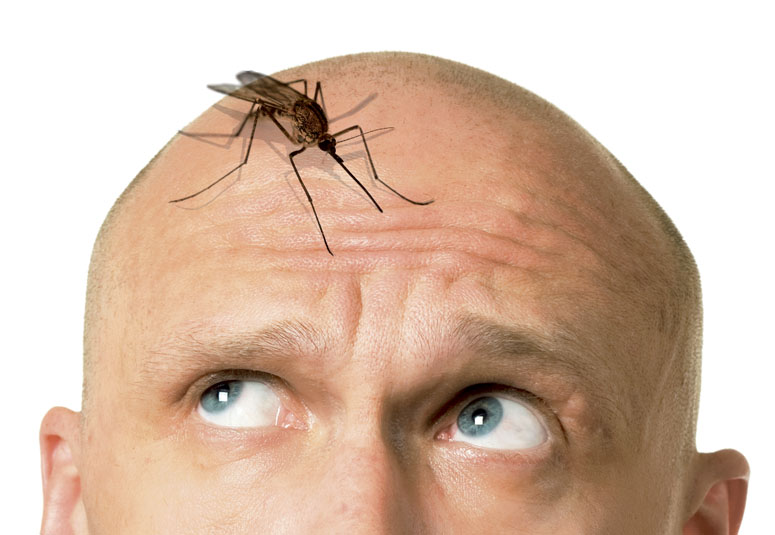If you think there are fewer mosquitoes buzzing in your ear so far this summer, don’t get too excited.
The mild winter may have delayed some of the “early” mosquitoes usually seen in Maine, but bug experts say there’s every reason to believe the rest of the season will be as mosquito-filled as any.
“The mild winter delayed the early mosquitoes, which we refer to as snow melt or snow pool mosquitoes, because there wasn’t any snow,” said James Dill, pest management specialist with the University of Maine Cooperative Extension in Orono. “However, there will still be plenty of other species for the remainder of the season. But those mosquitoes will be gone after a couple of good frosts.”
Even though melting snow wasn’t around to give mosquitoes a breeding ground, and an early start on the season, they will be with us for a good long time.
So it’s a good time to think about mosquito prevention around your house and in your yard.
INEXPENSIVE, COMMON-SENSE OPTIONS
Yes, you can spend hundreds of dollars to have someone spray your yard, and spend hundreds on gadgets like electric zappers or a propane-powered devourer of bugs called the Mosquito Magnet.
Or you could spend less on things like citronella candles (some people swear by them) or DEET-based foggers (Dill says these are the most effective, yet not safe for young children) or little lumps of larvicide known as “mosquito dunks” that you drop in water.
Mosquito prevention is not just about not wanting to get bitten during a cookout. Mosquitoes carry diseases, such as West Nile virus and Eastern equine encephalitis.
But even before you spend money on gadgets or chemicals, there is still a lot you can do to minimize the marauding of mosquitoes. And it all starts with water.
Maine’s 43 species of mosquitoes (approximately) spend most of their life cycles in water, and water is crucial to breeding. So you want to eliminate standing water in your yard wherever it may be, and to keep things as sunny and dry as possible.
That might mean getting rid of an awning or opening up a shed more often so it can dry out.
Consider some of these mosquito prevention tips from Michael Russo, president of Maine Mosquito Control in Portland:
• Change water in outdoor pet dishes frequently.
• Turn over flowerpots, buckets, kiddie pools or any other object that can collect water
• Check your yard for puddles that don’t dissipate.
• Make sure trash can lids are on tight, and drill drainage holes in the bottom.
• Change birdbath water at least twice a week, maybe more.
• Don’t leave old tires in your yard – they are known as the ultimate breeding ground for mosquitoes.
EXPERTS CAN HELP
But if you still want mosquito protection and don’t want to use standard fogger chemicals, Russo’s Maine Mosquito Control will “mist” your yard with a natural garlic-based liquid. Russo says it works great, but does not recommend it for people who do not like the smell of garlic. A typical residential application costs about $60, he said.
Most pest-control companies offer a range of sprays and treatments, which include traditional chemicals and natural ones. Ted St. Amand, owner of Atlantic Pest Solutions in Kennebunkport, says he can do a one-time spraying or arrange a season-long program of spraying using natural botanical sprays or conventional insecticides.
As far as spraying oneself, Dill says botanical-based repellents work, but have to be applied more frequently than DEET-based ones. But Dill cautions to ALWAYS read the label before using anything with DEET.
DEET can dissolve some plastics, and is not recommended for use on young children.
Besides things you can do to your yard for mosquito prevention, there are also things you can do to yourself, Dill says.
Try to avoid strenuous physical activity outdoors at dawn or dusk, when mosquitoes are most active. The bugs are attracted to carbon dioxide and body heat.
So stay cool, don’t huff and puff, and keep your yard dry.
These actions might not get rid of mosquitoes completely, but they should help.
Staff Writer Ray Routhier can be contacted at 791-6454 or at:
rrouthier@pressherald.com
Send questions/comments to the editors.



